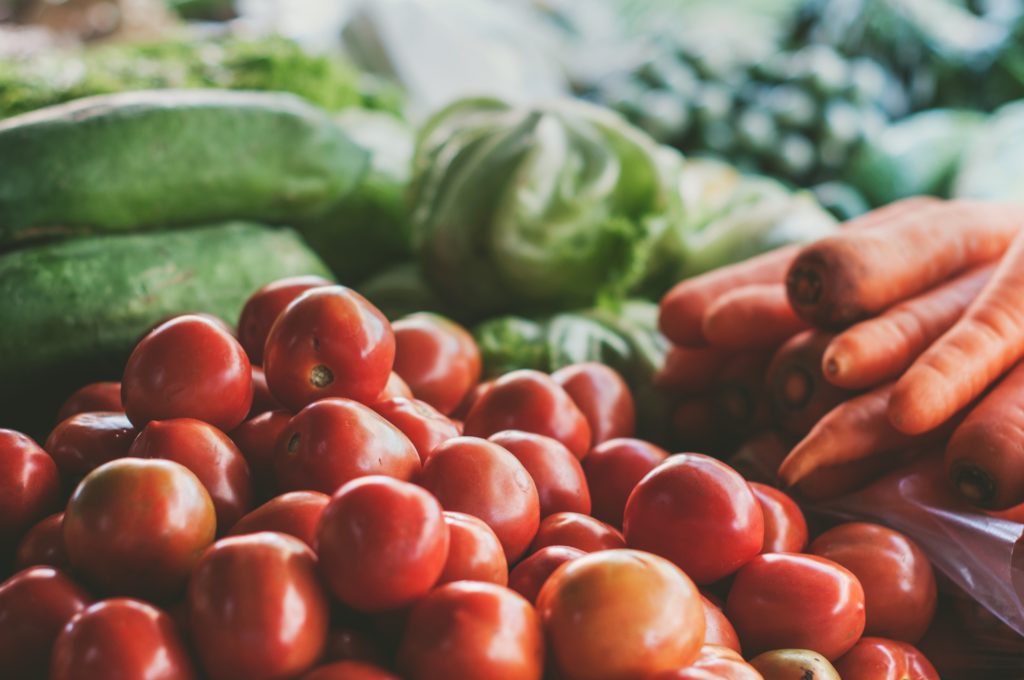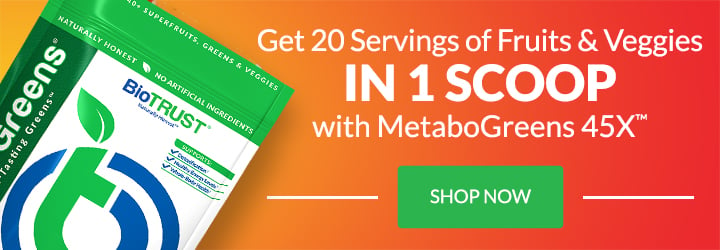Plant-Based Diet Grocery List: What to Eat (and what to avoid)

Whether you follow a vegan, vegetarian, or pescatarian diet, or you’re simply looking to add more plant-based foods to your diet (e.g., flexitarian or Mediterranean Diet), there are numerous reasons to transform how you shop with a plant-based diet grocery list.
The main reason is because by consuming more whole, minimally-processed plant-based foods, you’re likely to boost the nutrient density of your diet with more phytonutrients (such as polyphenols), fiber, vitamins, minerals, and healthy fats that many of us simply don’t get enough of. And folks who eat more plants (~70% plant-based) tend to be healthier in general and enjoy decreased risks of health issues, including diabetes, obesity, high blood pressure, cancer, stroke, and heart disease to name a few.
Diets rich in plant-derived foods also strongly support a healthy microbiome and promote diversity in the gut by increasing the amount of prebiotics (such as certain types of fiber, resistant starches, and polyphenols) that help the microbiome thrive. In addition, people who shop and eat with a plant-based diet grocery list often enjoy greater weight loss.
For example, one study found that people who followed a plant-based diet reduced their weight by nearly 10 pounds over 6 months with no energy restrictions when compared to a group that ate a typical diet. It’s worth pointing out that these plant-based diet was also low-carb and higher-protein. And generally speaking, folks who eat more whole, minimally-processed plant-based foods also tend to be more likely to engage in overall healthy lifestyle behaviors, such as maintaining regular physical activity.
Be that as it may, because folks who use a plant-based diet grocery list tend to eat fewer calories by filling up on nutrient-dense foods with low calorie-density, such as vegetables, fruits, and fiber-rich, satiating whole grains, it’s not surprising that they also tend to weigh less.
And if you value your vision (who doesn’t?), beta-carotene, found in carrots, may improve night vision, and plant foods like corn, grapes, kiwi, squash, and spinach are rich in lutein and zeaxanthin, pigments that help support eye health and may help prevent cataracts and macular degeneration.
What Does It Mean to Follow a Plant-Based Diet?
In the simplest terms, following a plant-based diet means you focus on increasing your consumption of nutrient-dense plant foods while you limit (or eliminate) your consumption of animal foods including meat, dairy, eggs, poultry, and fish. A plant-based diet grocery list encourages you to eat lots of vegetables (raw as well as cooked), legumes (such as beans), seeds, nuts, and fruits. Just as importantly is what you WON’T find on a plant-based diet grocery list that emphasizes whole, minimally-processed plant-based foods: few, if any, processed foods.
What Foods Should I Include on My Plant-Based Grocery List?
And now to the good stuff… what foods should you include on your plant-based diet grocery list? You’ll be happy to know, there are a variety of delicious and nutritious options. Let’s break them down:
Proteins
Because of the many benefits of higher-protein diets, let’s start with higher-protein plant foods:
- Beans (black, chickpea, kidney, etc.)
- Lentils
- Lima Beans
- Spirulina
- Chia Seeds
- Pumpkin Seeds
- Hemp Seeds
- Peanuts and Peanut Butter
- Almonds and Almond Butter
- Cashews, Pecans, Walnuts, Macadamia Nuts, and Brazil Nuts
- BioTrust Harvest Complete Vegan Protein Powder Blend
- Natto, Tofu, or Tempeh (non-GMO and preferably fermented)
- Nutritional Yeast
Nutrient-Rich Grains
Many grains provide a good dose of protein along with plenty of satiating fiber and other nutrients.
- Quinoa
- Amaranth
- Wild Rice
- Oatmeal (whole or steel-cut)
- Spelt
- Teff
- Einkorn
- Barley
- Sorghum
- Farro
- Kumut
- Sprouted Grain Breads
Fruits
Everyone needs a little sweetness in life, and fruits offer something for the sweet tooth and a punch of nutrition to boot!
- Avocados
- Olives
- Coconuts
- Guava
- Blackberries
- Blueberries
- Strawberries
- Nectarines
- Apples
- Pears
- Apricots
- Oranges
- Grapefruits
- Bananas
- Plums
Produce
When shopping for your plant-based diet grocery list, you’ll spend the majority of your time in the produce department (which shouldn’t exactly come as a surprise), and you’ll want to fill your cart with a variety of the choices below.
- Peas
- Potatoes
- Sweet Potatoes
- Yams
- Sweet Corn
- Spinach
- Kale
- Artichoke Hearts
- Broccoli
- Cauliflower
- Brussels Sprouts
- Swiss Chard
- Asparagus
- Collard Greens
- Beet Greens
- Mustard Greens
- Seaweeds (e.g., nori, kombu, wakame, dulse)
Are There Any Disadvantages to Switching to a Plant-Based Diet Grocery List?
Honestly, it depends. There are people who follow a strictly plant-based diet (such as vegetarians or vegans) who still rely on processed junk food. And no matter what type of diet you’re following, if it’s based on highly processed junk food, you are missing out on nutrition, getting sub-par calories in return, and setting yourself up for a laundry list of health struggles. Others may limit the variety of the foods they eat, which can lead to key nutrient deficiencies.
When you’re choosing to follow a plant-based diet grocery list, eat the rainbow. That doesn’t mean buying a packet of Skittles; rather, it means choosing a wide spectrum of colorful vegetables and fruits from the produce department and don’t be afraid to try new foods.
In addition, if you are following a strictly-plant-based diet, it is important to ensure you are consuming enough essential fatty acids, such as EPA and DHA, which are typically found in oily fish and fish and krill oil supplements. If you’re vegan, then you may need to supplement with an algae oil, as flax and chia seeds aren’t going to cut it.
And you’ll also want to ensure you’re getting enough vitamin B12 (methylcobalamin), which is found in meat, dairy, eggs, and fish. Instead of relying on fortified processed foods (which contain synthetic versions that have low bioavailability and can even be dangerous), you’re better off using a supplement like our favorite multivitamin—Ageless Core. You may also need to keep a close eye on “the sunshine vitamin” (vitamin D), calcium, and iodine to prevent deficiencies as these nutrients are often lacking for people who stick strictly to the plant-based diet grocery list.
There is such a wide variety of foods to include on your plant-based diet grocery list—you’re really only limited by your imagination and taste preferences. Try a wide variety, and you’ll soon find dozens of plant foods you love.







